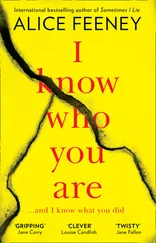Finally we turned onto a dirt lane, rutted and crusted with old snow. Andrei slowed down, took the bumps with care. He hadn’t said a word for nearly an hour. “We’re almost there?” I said.
“Da,” he said. “Gotova?” Are you ready?
The dacha was a wooden cottage nestled in a grove of pine trees. It looked like it was made of gingerbread, with white trim like icing. Andrei cut the motor and reached into the back for the bag of gifts he had brought. We got out of the car. It was cold, but it was almost noon and the sun was bright on the snow.
“Dobry dyen!” Andrei called with exaggerated cheer. Good day! He knocked on the door with three quick raps. Was it some kind of code?
Zoya materialized in the doorway. “Skolko let, skolko zim?” she said. How many summers, how many winters? It was such a poetic way to say it had been too long.
1983
IT’S THE DAY OF OUR CLASS PLAY. Our parents are arranged on folding chairs erected for the occasion, and the other lower-school classes—fourth-, fifth-, and sixth-graders—are cross-legged on the gymnasium floor. From backstage I spot my mother through a torn seam in the curtain. Her hair is hidden in a blue-and-orange scarf, and she’s drowning in a cardigan that is far too big for her. She studies the program as if preparing for a quiz. In the front row, I see Jenny’s parents. Mrs. Jones has dressed up; she’s even wearing high heels. Mr. Jones is telling a story to the mother next to him. Or maybe it’s a joke. The woman grins, captive to his charms.
Behind the curtain, Mrs. Gibson is whispering final notes. Take a deep breath, she says to us. You know your parts, you’re ready. Now just enjoy it. It’s called a play because it’s supposed to be fun.
Jenny’s ruby red slippers are on the prop table, awaiting the second act. They are patent Mary Janes, purchased at the little shoe store on Macomb Street, then smeared with glue and covered with glitter. Mrs. Jones made them. She volunteered her services; she loves costumes.
In a corner, Jenny is warming up her voice. “To sit in solemn silence on a dull, dark dock / In a pestilential prison with a life-long lock. / Awaiting the sensation of a short, sharp shock / From a cheap and chippy chopper with a big, black block.”
Did you teach her that? It is Kim hissing in my ear. Was she actually the Wicked Witch, or is that just how I remember her? She raps my shoulder with her broom.
Teach her what? I say. I don’t look at Kim, but I can see the ghoulish green of her face paint out of the corner of my eye.
That dumb vocal exercise, she says. It’s so depressing I figured it must have come from you. It’s about jail and someone waiting to get their head chopped off. Gross.
No, I say. It didn’t come from me .
Jenny repeats the rhyme. Her alliterative consonants are defined and crisp. Awaiting the sensation of a short, sharp shock. She’s not famous yet—her letter to Andropov won’t be published for another three weeks—but she is already a star.
I hear the impatience of the audience: the squeak of metal as chairs inch back, the rustle of paper as programs are opened and closed, the wiggling girls who are glad to be out of class. And then Mrs. Gibson’s voice from out in front of the house.
Welcome, she says. We are so grateful you could all be here.
My classmates and I cluster in a nervous swarm, and then Mrs. Gibson is there in the dark, hustling us into our places, and the lights in the gym go down, and when the curtain goes up, only Jenny looks ready to perform.
* * *
EVEN AFTER ALL THESE YEARS, I remember the pungent smell of vinegar as we walked into the house. It was the marinade for the shashlik, Svetlana said. The kebabs had already been soaking for hours.
“It smells delicious,” I lied.
Zoya was wearing a black turtleneck sweater and black jeans. She was shorter than I was, shorter than I thought Jenny would end up being, and curvier than I had imagined Jenny would be. “Welcome to a Russian country house,” she said.
“This is Sarah,” Andrei said. “Our American friend.”
“The crazy girl from our office,” Sveta said with a smile.
“I believe I saw you on the roller coaster,” Zoya said.
“Really?” I said. I thought I’d been so stealthy.
There was something wintry in her expression. She wore small diamonds—or rhinestones? it was hard to tell if they were fake—in her ear and twisted them while she spoke. “I spent some of the money your boss gave me at Gorky Park,” she said to Andrei and Svetlana. “Those rides are expensive. It’s hard to justify paying for them unless you get a sudden windfall. I decided to treat myself.”
“What is this ‘windfall’?” Sveta said.
“ ‘Windfall’ eto kak udacha,” Andrei said. “Like a lucky break.”
“Did you go on roller coasters when you were a kid?” I said to Zoya.
“We had no roller coasters in Moscow,” Svetlana said.
“But Zoya lived in the United States,” I said. “Didn’t you?”
I waited for some kind of reaction. A half smile, a wince. Anything. Her face remained blank, serene as a mask. I inhaled deeply, as if the scent of her might give something away. If you asked me to describe what Jenny smelled like, I couldn’t tell you, but I thought there might be some familiar note that would take me back to the Jones house. Zoya just smelled like tobacco. If regret had an odor, it would smell like an ashtray.
“Da,” she said. “But I gather their boss isn’t supposed to know that.” She handled her words carefully, as if they were made of glass. The Moscow accent I’d heard at the ad agency was gone. She spoke English like a native, with an American accent. But so did Andrei. It didn’t prove anything.
I gave her the tulips. “Spasibo,” she said, and pressed her nose into the flowers for a careless sniff.
“Tulips smell like nothing,” Svetlana said. “The Dutch have no passion, I tell you.”
The room was crowded with various objects and competing patterns. The walls were papered in a dark red floral print on which dozens of oil paintings hung. The pictures were of ancient Russian churches, mostly, with glinting gold domes. Three Oriental rugs had been arranged in overlapping squares, and the lamps were covered with patchwork shades. An antique silver samovar loomed on the sideboard, and among the books on the shelves painted lacquer boxes fought for space with dried flowers. I felt like I was stepping into a Chekhov play.
“This is a typical dacha?” I said.
“Dacha is where Russians go to relax,” Svetlana said.
“Some dachas are much smaller,” Andrei said. “And most dachas are only used between May and October. We grill shashlik outdoors. It is a little cold today, but we will manage.” He held up a bottle of vodka and winked.
“Won’t you sit down?” Zoya said. She indicated a leather recliner draped with an old quilt. “This is the most comfortable seat in the house.”
I sank into the chair. Zoya and Andrei sat down on a sagging sofa opposite me.
“I will put flowers in the vase,” Svetlana said. She carried my tulips away.
I ran my eyes over the room, looking for clues. On the bookshelves all the titles were in Russian. There were no framed family photographs, no evidence of the Joneses or of the United States of America. There was an acoustic guitar on the floor in one corner. An old turntable sat on a shelf with dozens of records stacked haphazardly next to it. An antique clock on the wall had Roman numerals on its face. A chessboard was set up on a small table near the window. What if, instead of MASH, Jenny and I had played a game called DASH, in which future home options were Dacha, Apartment, Shack, House?
Читать дальше












